Startup Successes at UGA
For the eighth straight year, the University of Georgia has placed among the top five U.S. universities for the number of commercial products created from its research.
The development of new products at UGA has sparked the launch of hundreds of successful companies—which have moved closer to their full market potential thanks to support from the university’s robust startup incubator.
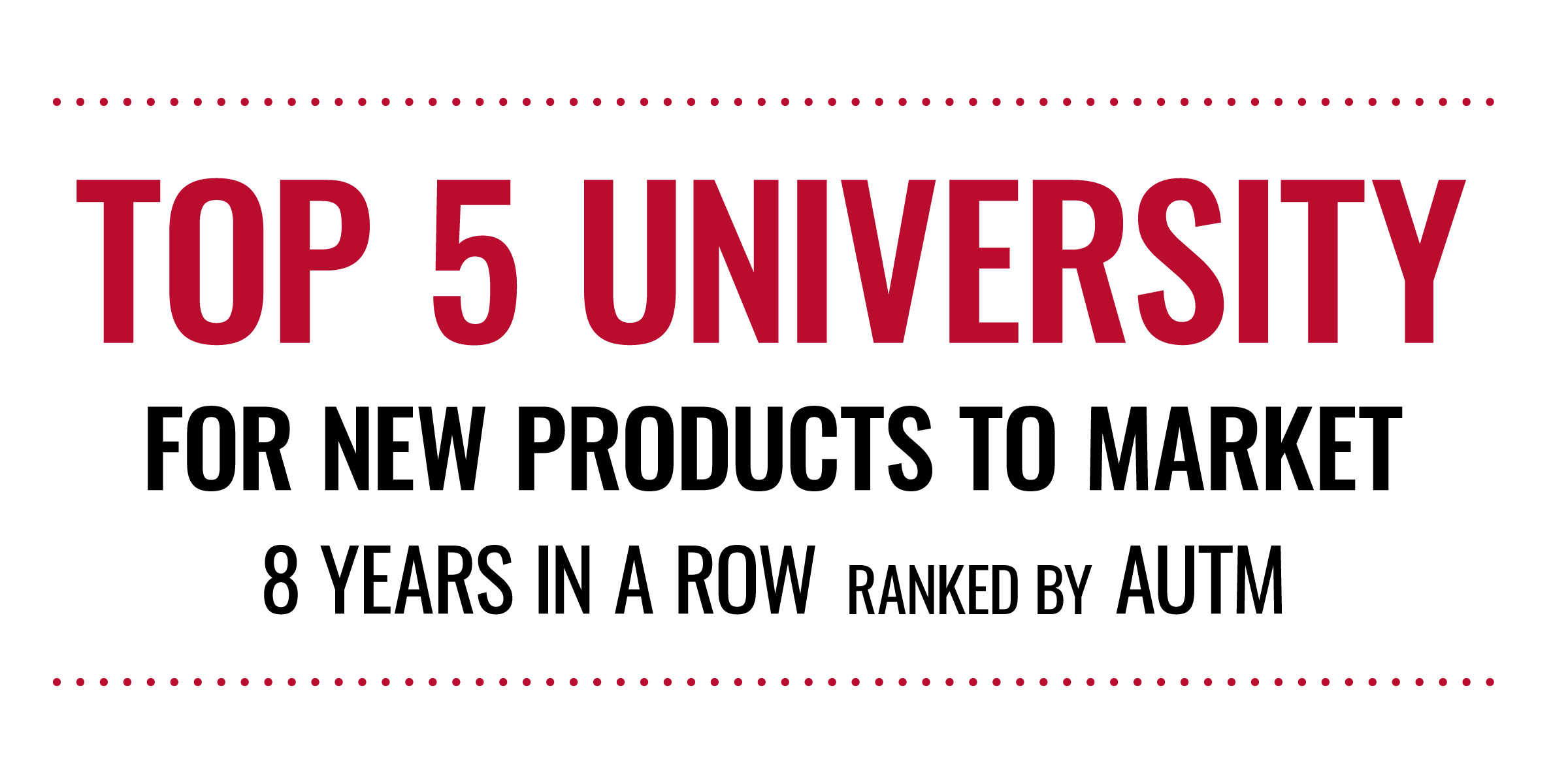
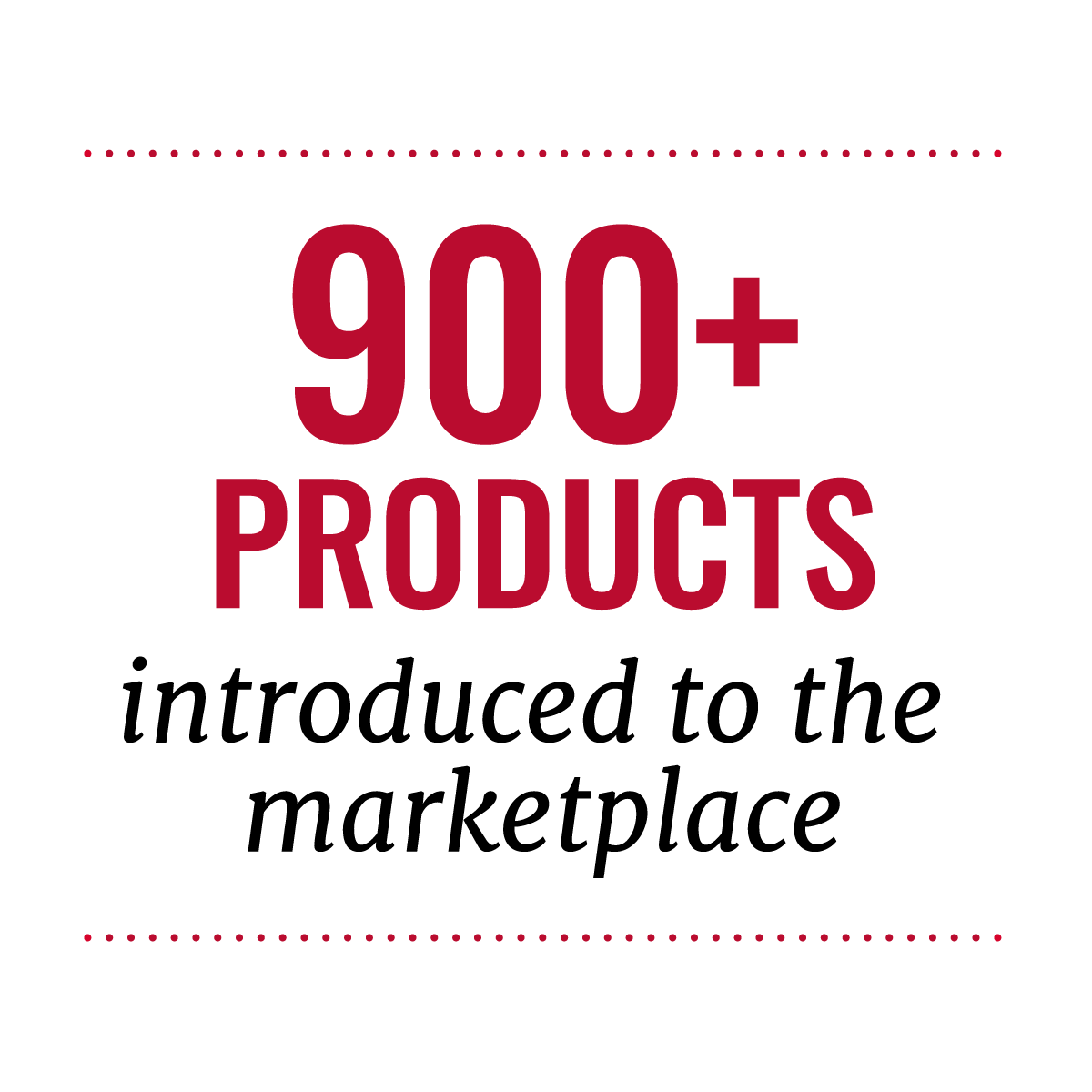
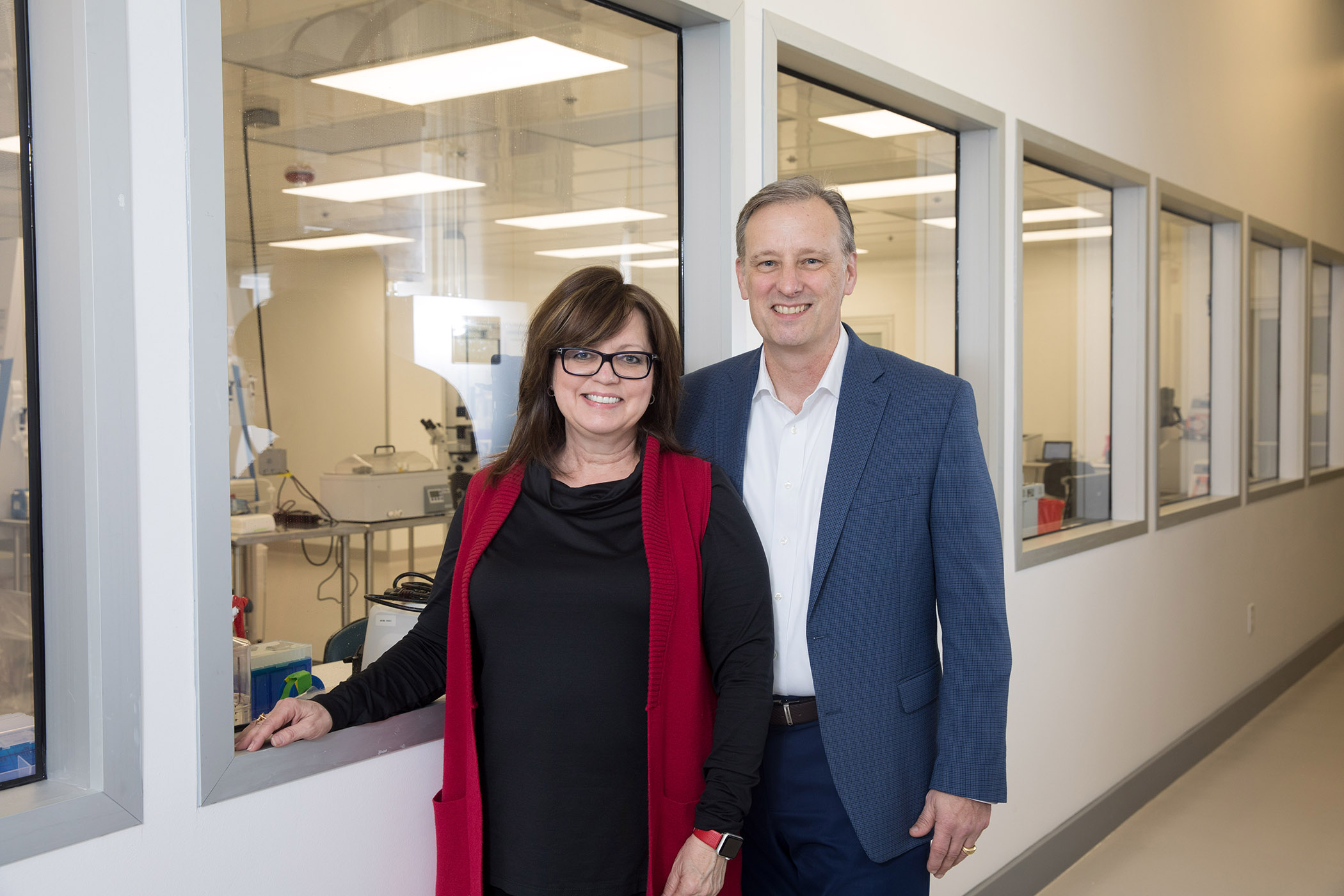
Tracey Worthington Stice and Steve Stice are the co-founders of research startup ArunA Bio. (Photo by Dorothy Kozlowski/UGA)
Aruna Bio
Based on the research of Steven Stice, Aruna Bio is the first company to commercialize a product derived from human pluripotent stem cells, and it is now using this original stem cell technology as a basis for preclinical human therapeutics and drug delivery. Treatments focus on central nervous system injury and neurodegenerative disorders, with a special focus on stroke.
Cyanvac
Founded by UGA researcher Biao He, CyanVac is developing vaccines and treatments for deadly infections such as rabies, tuberculosis, HIV and COVID-19 based on a viral delivery platform containing modified strains of a virus called parainfluenza virus 5, or PIV5. By placing antigens from other viruses or parasites inside PIV5, it effectively becomes a delivery vehicle that allows the system to create the antibodies that will protect against future infections.
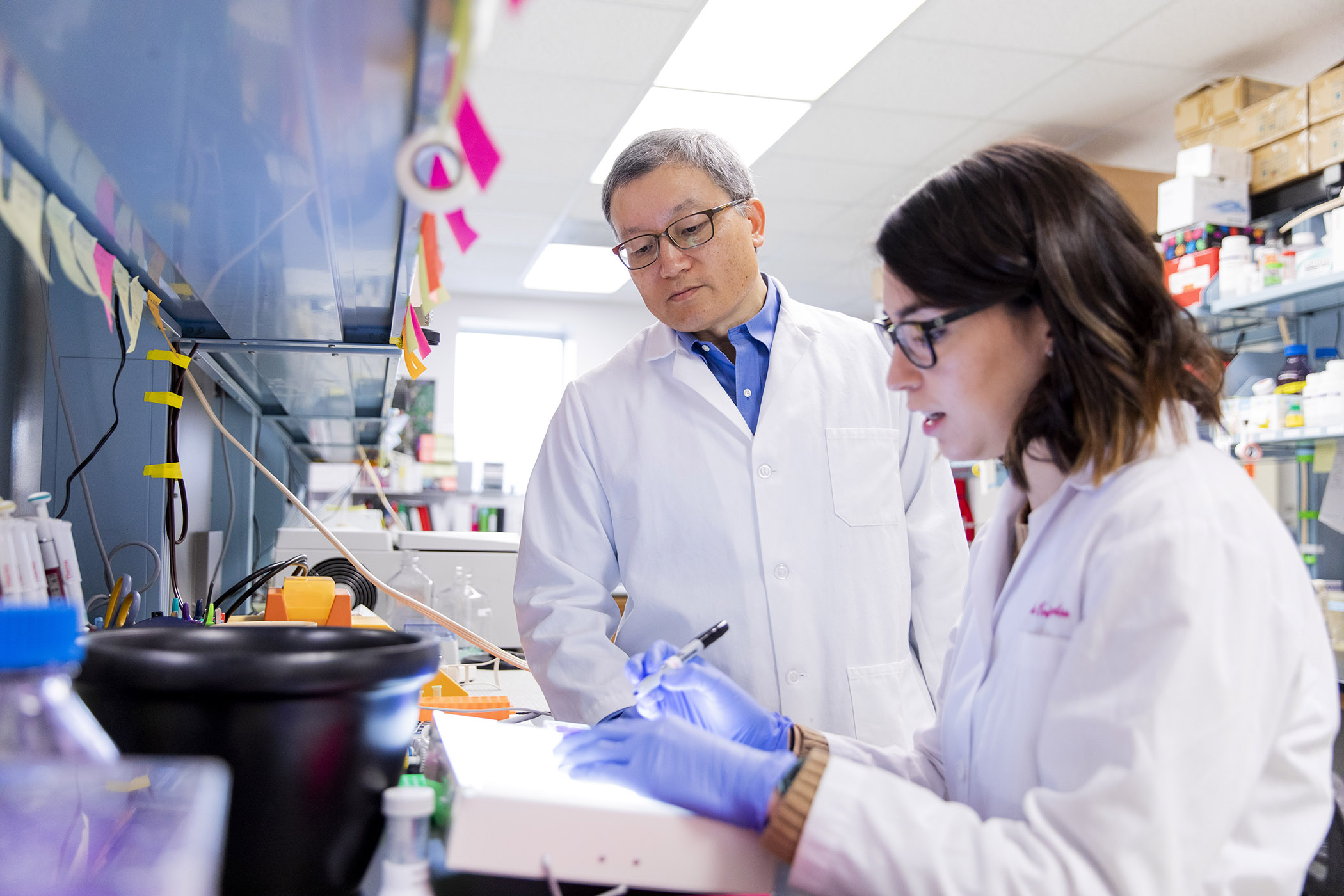
Professor Biao He works with Ph.D. student Maria Huertas-Diaz in his lab in February 2020. He developed a COVID-19 vaccine candidate that has proven successful in early test models. (Photo by Andrew Davis Tucker/UGA)
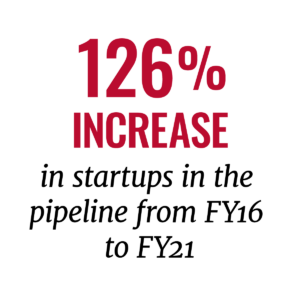
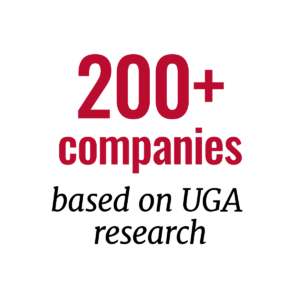
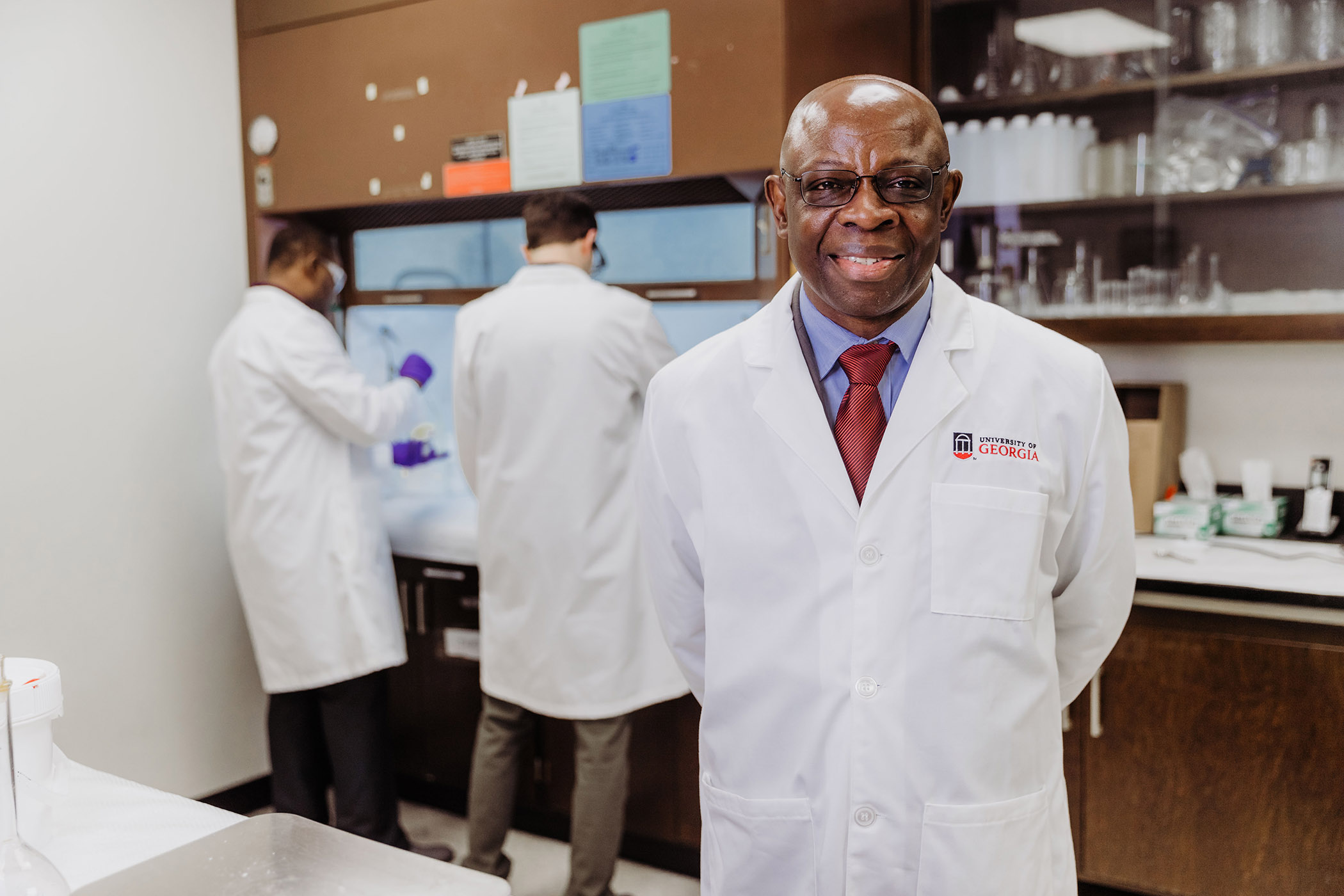
Valentine Nzengung, professor of environmental geochemistry and founder of MuniRem Environmental LLC.
MuniRem
MuniRem founder Valentine Nzengung developed a product to safely neutralize explosives and chemical warfare agents with no hazardous byproducts. The technology can also be used to decontaminate soil and water near bomb ranges, mines or munitions factories where dangerous residues have accumulated over many years.


